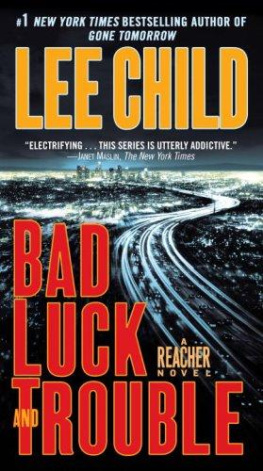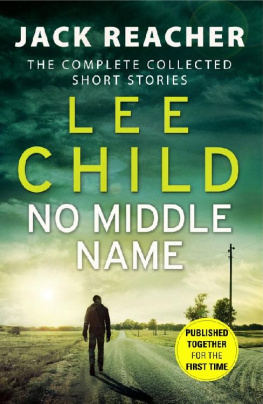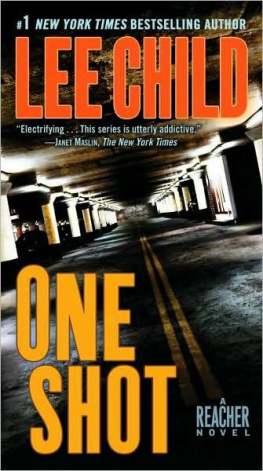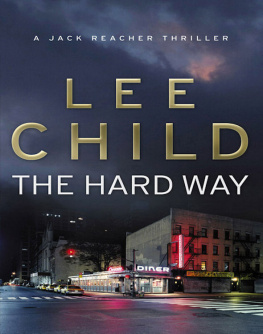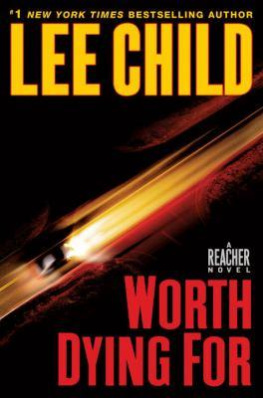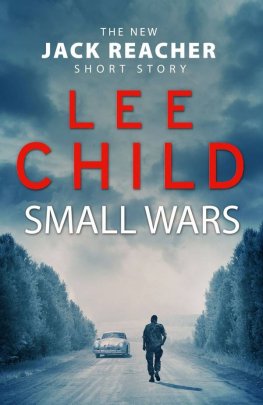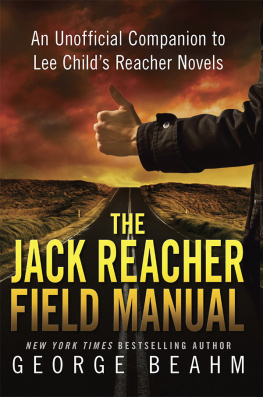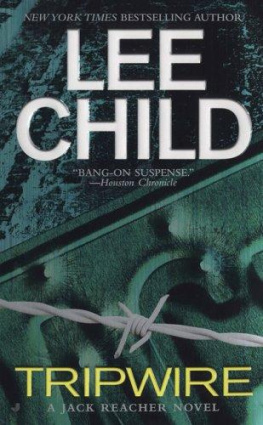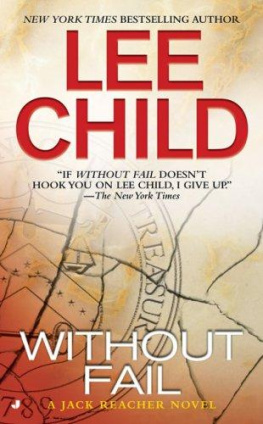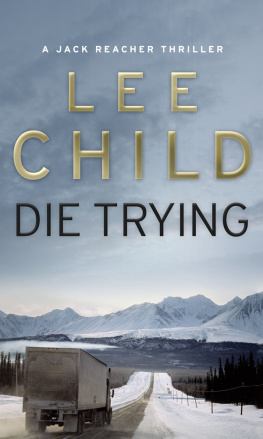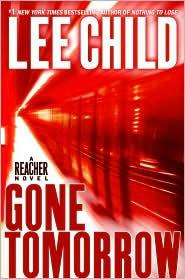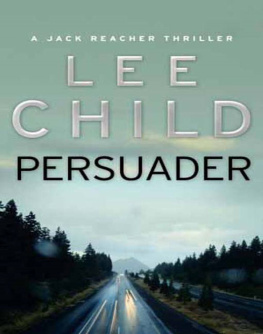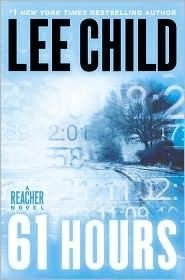Lee Child - Without Fail
Here you can read online Lee Child - Without Fail full text of the book (entire story) in english for free. Download pdf and epub, get meaning, cover and reviews about this ebook. genre: Detective and thriller. Description of the work, (preface) as well as reviews are available. Best literature library LitArk.com created for fans of good reading and offers a wide selection of genres:
Romance novel
Science fiction
Adventure
Detective
Science
History
Home and family
Prose
Art
Politics
Computer
Non-fiction
Religion
Business
Children
Humor
Choose a favorite category and find really read worthwhile books. Enjoy immersion in the world of imagination, feel the emotions of the characters or learn something new for yourself, make an fascinating discovery.

- Book:Without Fail
- Author:
- Genre:
- Rating:3 / 5
- Favourites:Add to favourites
- Your mark:
- 60
- 1
- 2
- 3
- 4
- 5
Without Fail: summary, description and annotation
We offer to read an annotation, description, summary or preface (depends on what the author of the book "Without Fail" wrote himself). If you haven't found the necessary information about the book — write in the comments, we will try to find it.
Without Fail — read online for free the complete book (whole text) full work
Below is the text of the book, divided by pages. System saving the place of the last page read, allows you to conveniently read the book "Without Fail" online for free, without having to search again every time where you left off. Put a bookmark, and you can go to the page where you finished reading at any time.
Font size:
Interval:
Bookmark:

Lee Child
Without Fail
The sixth book in the Jack Reacher series
This one is for
my brother Richard in Gloucester, England;
my brother David in Brecon, Wales;
my brother Andrew in Sheffield, England;
and my friend Jack Hutcheson in Penicuik, Scotland.
1
They found out about him in July and stayed angry all through August. They tried to kill him in September. It was way too soon. They werent ready. The attempt was a failure. It could have been a disaster, but it was actually a miracle. Because nobody noticed.
They used their usual method to get past security and set up a hundred feet from where he was speaking. They used a silencer and missed him by an inch. The bullet must have passed right over his head. Maybe even through his hair, because he immediately raised his hand and patted it back into place as if a gust of wind had disturbed it. They saw it over and over again, afterward, on television. He raised his hand and patted his hair. He did nothing else. He just kept on with his speech, unaware, because by definition a silenced bullet is too fast to see and too quiet to hear. So it missed him and flew on. It missed everybody standing behind him. It struck no obstacles, hit no buildings. It flew on straight and true until its energy was spent and gravity hauled it to earth in the far distance where there was nothing except empty grassland. There was no response. No reaction. Nobody noticed. It was like the bullet had never been fired at all. They didnt fire again. They were too shaken up.
So, a failure, but a miracle. And a lesson. They spent October acting like the professionals they were, starting over, calming down, thinking, learning, preparing for their second attempt. It would be a better attempt, carefully planned and properly executed, built around technique and nuance and sophistication, and enhanced by unholy fear. A worthy attempt. A creative attempt. Above all, an attempt that wouldnt fail.
Then November came, and the rules changed completely.
Reachers cup was empty but still warm. He lifted it off the saucer and tilted it and watched the sludge in the bottom flow toward him, slow and brown, like river silt.
When does it need to be done? he asked.
As soon as possible, she said.
He nodded. Slid out of the booth and stood up.
Ill call you in ten days, he said.
With a decision?
He shook his head. To tell you how it went.
Ill know how it went.
OK, to tell you where to send my money.
She closed her eyes and smiled. He glanced down at her.
You thought Id refuse? he said.
She opened her eyes. I thought you might be a little harder to persuade.
He shrugged. Like Joe told you, Im a sucker for a challenge. Joe was usually right about things like that. He was usually right about a lot of things.
Now I dont know what to say, except thank you.
He didnt reply. Just started to move away, but she stood up right next to him and kept him where he was. There was an awkward pause. They stood for a second face-to-face, trapped by the table. She put out her hand and he shook it. She held on a fraction too long, and then she stretched up tall and kissed him on the cheek. Her lips were soft. Their touch burned him like a tiny voltage.
A handshake isnt enough, she said. Youre going to do it for us. Then she paused. And you were nearly my brother-in-law.
He said nothing. Just nodded and shuffled out from behind the table and glanced back once. Then he headed up the stairs and out to the street. Her perfume was on his hand. He walked around to the cabaret lounge and left a note for his friends in their dressing room. Then he headed out to the highway, with ten whole days to find a way to kill the fourth-best-protected person on the planet.
It had started eight hours earlier, like this: team leader M. E. Froelich came to work on that Monday morning, thirteen days after the election, an hour before the second strategy meeting, seven days after the word assassination had first been used, and made her final decision. She set off in search of her immediate superior and found him in the secretarial pen outside his office, clearly on his way to somewhere else, clearly in a hurry. He had a file under his arm and a definite stay back expression on his face. But she took a deep breath and made it clear that she needed to talk right then. Urgently. And off the record and in private, obviously. So he paused a moment and turned abruptly and went back inside his office. He let her step in after him and closed the door behind her, softly enough to make the unscheduled meeting feel a little conspiratorial, but firmly enough that she was in no doubt he was annoyed about the interruption to his routine. It was just the click of a door latch, but it was also an unmistakable message, parsed exactly in the language of office hierarchies everywhere: you better not be wasting my time with this.
He was a twenty-five-year veteran well into his final lap before retirement, well into his middle fifties, the last echo of the old days. He was still tall, still fairly lean and athletic, but graying fast and softening in some of the wrong places. His name was Stuyvesant. Like the last Director-General of New Amsterdam, he would say when the spelling was questioned. Then, acknowledging the modern world, he would say: like the cigarette. He wore Brooks Brothers every day of his life without exception, but he was considered capable of flexibility in his tactics. Best of all, he had never failed. Not ever, and he had been around a long time, with more than his fair share of difficulties. But there had been no failures, and no bad luck, either. Therefore, in the merciless calculus of organizations everywhere, he was considered a good guy to work for.
You look a little nervous, he said.
I am, a little, Froelich said back.
His office was small, and quiet, and sparsely furnished, and very clean. The walls were painted bright white and lit with halogen. There was a window, with white vertical blinds half closed against gray weather outside.
Why are you nervous? he asked.
I need to ask your permission.
For what?
For something I want to try, she said. She was twenty years younger than Stuyvesant, exactly thirty-five. Tall rather than short, but not excessively. Maybe only an inch or two over the average for American women of her generation, but the kind of intelligence and energy and vitality she radiated took the word medium right out of the equation. She was halfway between lithe and muscular, with a bright glow in her skin and her eyes that made her look like an athlete. Her hair was short and fair and casually unkempt. She gave the impression of having hurriedly stepped into her street clothes after showering quickly after winning a gold medal at the Olympics by playing a crucial role in some kind of team sport. Like it was no big deal, like she wanted to get out of the stadium before the television interviewers got through with her teammates and started in on her. She looked like a very competent person, but a very modest one.
What kind of something? Stuyvesant asked. He turned and placed the file he was carrying on his desk. His desk was large, topped with a slab of gray composite. High-end modern office furniture, obsessively cleaned and polished like an antique. He was famous for always keeping his desktop clear of paperwork and completely empty. The habit created an air of extreme efficiency.
I want an outsider to do it, Froelich said.
Next pageFont size:
Interval:
Bookmark:
Similar books «Without Fail»
Look at similar books to Without Fail. We have selected literature similar in name and meaning in the hope of providing readers with more options to find new, interesting, not yet read works.
Discussion, reviews of the book Without Fail and just readers' own opinions. Leave your comments, write what you think about the work, its meaning or the main characters. Specify what exactly you liked and what you didn't like, and why you think so.

